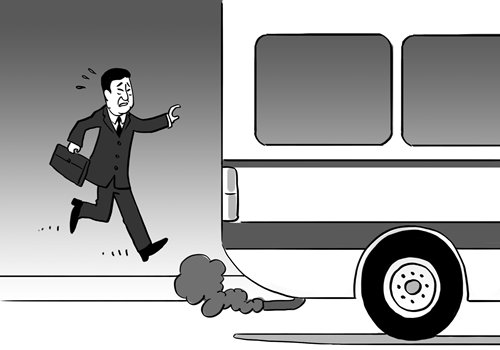
Illustration: Liu Rui/GT
The year 2018 marks the 150th anniversary of Meiji Restoration in Japan. Initiated in 1868, Meiji Restoration was a top-down capitalism reform, which not only made Japan the first country in Asia to begin industrialization, but also delivered it from the yoke of Western colonization. A major historical turning point, it marks the beginning of modernization in Japan.
The celebrations are of particular significance to Japanese Prime Minister Shinzo Abe, who started out from Yamaguchi Prefecture. Not long after Meiji Restoration, Japan emulated the West to adopt the cabinet system, and the first prime minister of the imperial cabinet - Hirobumi Ito - was also from Yamaguchi Prefecture. Masatake Terauchi and Eisaku Sato, respectively the prime ministers on the 50th and 100th anniversaries of Meiji Restoration, were both from Yamaguchi Prefecture, too. Therefore, celebrating the 150th anniversary during Abe's third tenure not only marks the honor for Yamaguchi Prefecture, but is also a historical landmark.
Even after a century and half, the implementation of Meiji Restoration is used as a historical reference. The 19th century was a turbulent period for Japan when both domestic strife and foreign aggression added to its woes.
Domestically, Tokugawa Shogunate adopted a sakoku policy and foreign trade was largely restricted. Meanwhile, in fairly developed areas, capitalism began to sprout, which severely affected the feudal economy. The government of Tokugawa Shogunate lost its credibility as it failed to rein in financial deficit and inflation.
The external international environment was also shocking for Japan. After the first Opium War, the Qing government (1644-1911) was forced to sign a series of unequal treaties with Western powers, which affected Japan. In June 1853, four warships directed by American Commodore Matthew Perry paid a sudden visit to Japan, and demanded that diplomatic and trade relations be established between the two countries. It is known as Perry Expedition in history.
After that, Japan was forced to sign many other unequal treaties with Western powers, which hugely undermined the country's sovereignty. Under the circumstances, the new government led by Emperor Meiji began to build a centralized political system, introduced advanced technologies and political systems of the West, scrapped unequal treaties with Western countries, and soon made Japan an Asian and world power. Hence the importance of Meiji Restoration to developing countries today.
Meiji Restoration made Japan a developed country, yet also pushed it onto the path of militarism, which brought pain and loss to other Asian countries. Deficient resources and limited domestic market drove Japan to seek territorial expansion, which triggered the Sino-Japanese war. In 1900, Japan again acted as a major force when the Eight-Nation Alliance invaded China. Besides, some ideologies that emerged during Meiji Restoration, like the debate to conquer Korea, were also behind Japan's aggression against China, waging the War in the Pacific, as well as formation of the so-called Greater East Asia Co-Prosperity Sphere in the early Showa period. Hence, in spite of its positive historical significance, the negative impact of Meiji Restoration should never be forgotten.
The primary reason for the overwhelming success of Meiji Restoration is that Japan seized the momentum and rode the tide in the right direction during times of change. Though the global landscape is greatly different from what it was then, Japan is now at a historical crossroads. With the rise of China, the landscape in Asia or even the world is changing, which will definitely influence the future development of Japan.
Yet pitifully, the Abe government fails to see the change. Its efforts in confronting and containing China is undermining the strength of Japan, missing favorable opportunities for development. Thus at the crucial moment of the 150th anniversary of Meiji Restoration, the Abe government should make efforts to appreciate the wisdom and vision of that generation and try to learn from history.


